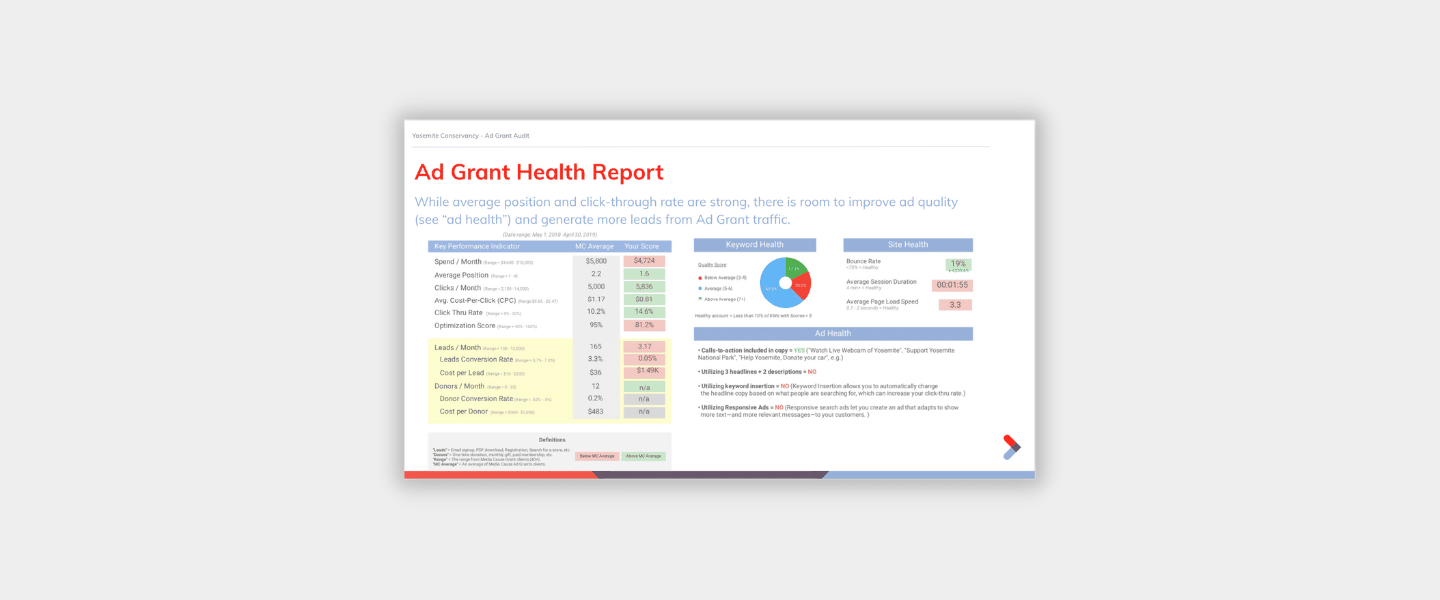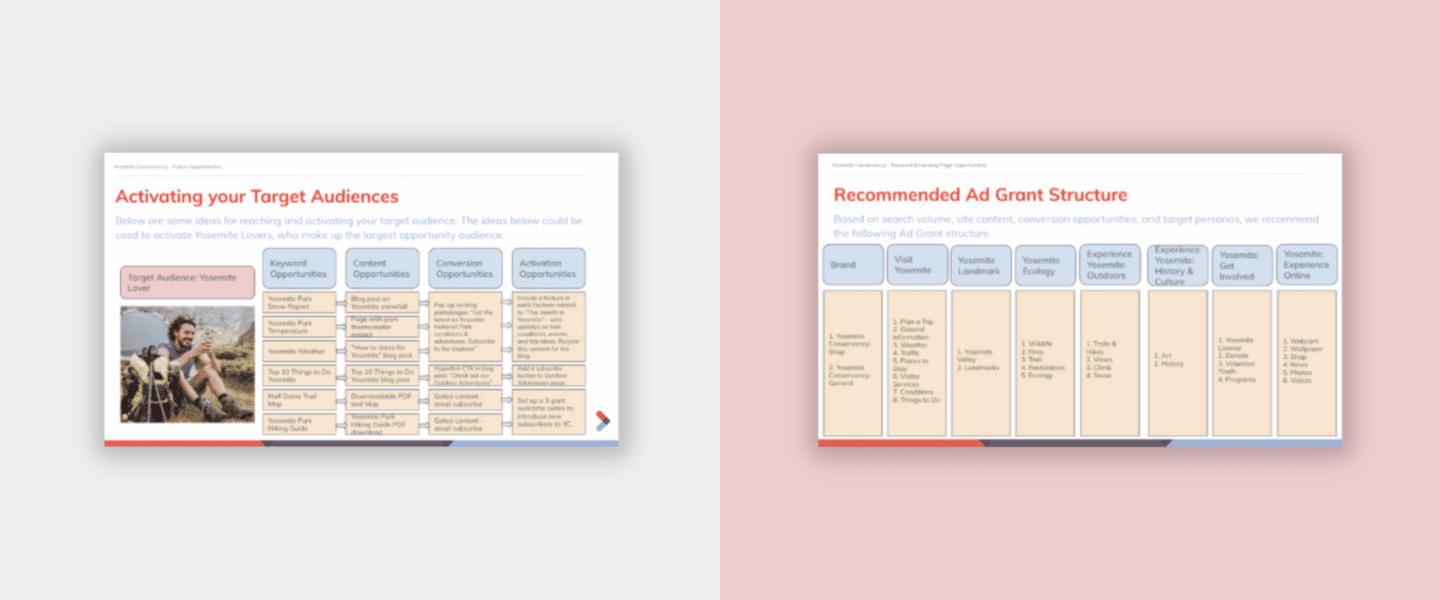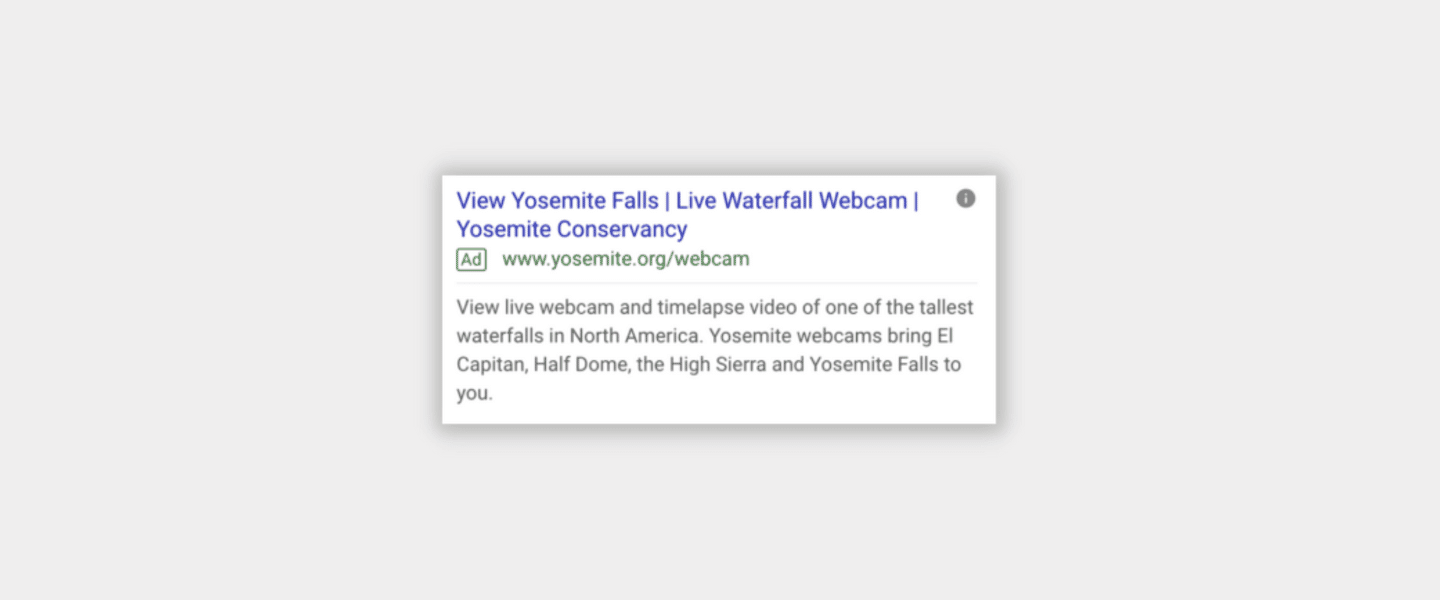
Yosemite is known as the birthplace of the national park idea — and of nonprofit park partnerships. Nearly 60 years after President Lincoln signed the Yosemite Grant Act, the Yosemite Museum Association formed to help build a museum in Yosemite. That association, the first nonprofit partner in the National Park System, evolved over decades and strengthened its partnership with the park — now, it lives on as Yosemite Conservancy
Yosemite needed a way to increase, quality traffic to its website. Google Ad Grants is one of the top sources of website traffic but assuring the quality of that traffic was the main challenge for the client. Their goal was for us to better optimize their Ad Grants to target the right audience. Once we turned these prospects into website visitors, our goal was to make sure that they are accessing the information they need, engaging with the website, and ultimately converting into valuable email subscribers, donors, and/or customers.
The first step we took toward optimizing Yosemite Conservancy’s Ad Grants was to conduct a full audit to assess opportunities for improvement. Based on our findings, we restructured the account with new campaigns, ads, and keywords. To drive high-quality traffic, we worked on testing and refining ad copy, in addition to ensuring campaign keywords aligned closely with user search intent. Following our audit, we strategically removed ads and keywords that had a high cost-per-click (CPC) and/or a low click-through rate (CTR).
Focusing beyond Ad Grants, we identified key conversions on the Yosemite Conservancy website including subscribing to the newsletter, clicking ‘donate’ on the website lightbox, and making online merchandise purchases, and took the steps to implement tracking for these conversions. We also made recommendations to improve their website including the addition of lightboxes on popular pages and suggestions for blog post content based on search data.
We conducted a 4-phases audit to review Yosemite Conservancy’s Ad Grants and identify opportunities. We started by conducting an Ad Grants health report to ensure that the grants structure was closely mirroring the website organization. We continued with keyword research to assess keywords used in the past and uncover search opportunities. Then, we reviewed conversion tracking and recommended new conversion goals.
We shared 5 key recommendations with the client:

We acted upon our recommendations to overhaul the client’s Ad Grants by creating more focused campaigns (along with their matching ads and keywords) to be able to have better visibility into what had the most reactions.

With a restructured ad account and clearly defined KPIs, we worked to continuously improve performance month over month by testing new ad copy and pausing ineffective keywords.
We also introduced responsive search ads to test against expanded text ads. The former quickly found themselves at the top of best-performing ads.
To make the most of our Ad Grants budget, we carefully monitored costs and strategically shifted the budget as necessary toward campaigns with lower CPCs.
